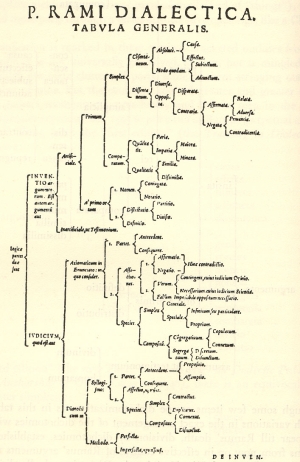Abracadabra: Language, Memory, Representation
Getting from Memory to Logic and back.
What is the relationship between memory and Logic?
The theoretical question is raised by Borges in "Funes, His Memory". After being thrown from a horse and crippled, Funes posesses a memory so exquisite that he is incapable of generalizing at all. In terms of the memory systems we have discussed, Funes is capable of remembering res directly, without the mediation of associated images. However, as a result, each memory is like an experience, and each memory of a memory and each memory of a memory of a memory...
As a thought-experiment, this story raises questions about the nature of generalization and logic. It is strangely irrelevant to Funes (and will be to the subject of Luria as well). We never learn how Funes categorizes his memory (what he uses to 'inventory' it, in Carruthers' terms), but only that it is unnecessary.
The most striking example of this problem is the numbering system that Funes invents. His numbers are as follows:
Instead of sevent thousand thirteen (7013), he would say, for instance, 'Máximo Pérez'; instead of seven thousand fourteeen (7014), 'the railroad'; other numbers were "Luis Melián Lafinur", "Olimar", "Sulfur", "clubs", "the whale", "gas", "a stewpot", "Napoleon", "Agustín de Vedia". Instead of five-hundred (500), he said "nine." "I tried to explain to funes that his rhapsody of unconnected words was exactly the opposite of a number system. I told him that when one said '365'one said 'three hundreds, six tens and five ones,' a breakdown impossible with the 'numbers' Nigger Timoteo or a ponchoful of meat. Funes either could not or would not understand me.
The system of numbering, a "logical" system in the general sense, was unnecessary for Funes. Unnecessary, or perhaps, impossible to understand.
Logic, at least so-called 'scientific' logic (induction and experiment) can be understood along the lines of the "inventory" that Carruthers speaks of:
- it is useless to have a brain full of things and images with no system for organizing and retrieving them.
- Similarly, it is useless to have an archive, or computers full of heaps of data or information with no system for organizing or retrieving it.
- The advent of logic as an organizing priniciple coincides with the increasing commitment of science to books, rather than to memory.
We can see here how an 'inventory' system for keeping track in memory (which is fallible, and quite finite), is not fundamentally different from a numbering system for keeping track of papers or data, which are unchanging (if not infinite or infallible). But if the memory of a computer or a photograph, or a chart is absolute, why do we need logical systems at all?
If writing is a replacement for memory, what is the relation between writing and logic? Why is the narrator so uncertain of his own (invented) story?
The historical origin begins with Peter Ramus.
- Ramus is a 16th century educator and reformer.
- Ramus was one of the first to suggest that there is not one logic, but many. He attacked Aristotle for having misunderstood the true nature of logic.
- More specifically, Ramus disagreed with the organization of learning. His biggest grudge was with the received wisdom that inventio is a part of Rhetoric. Instead it should be considered, along with dispositio, a part of Logic.
- Another kind of logic...
Some Quotations...

Ramus' Dialectical Method, from Walter Ong Ramus 1958.
Remember thee?
Ay, thou poor ghost, whiles memory holds a seat
In this distracted globe. Remember thee?
Yea, from the table of my memory
I'll wipe away all trivial fond records,
All saws of books, all forms, all pressures past
That youth and observation copied there,
And thy commandment all alone shall live
Within the book and volume of my brain.
William Shakespeare, Hamlet Act I, Scene 5.